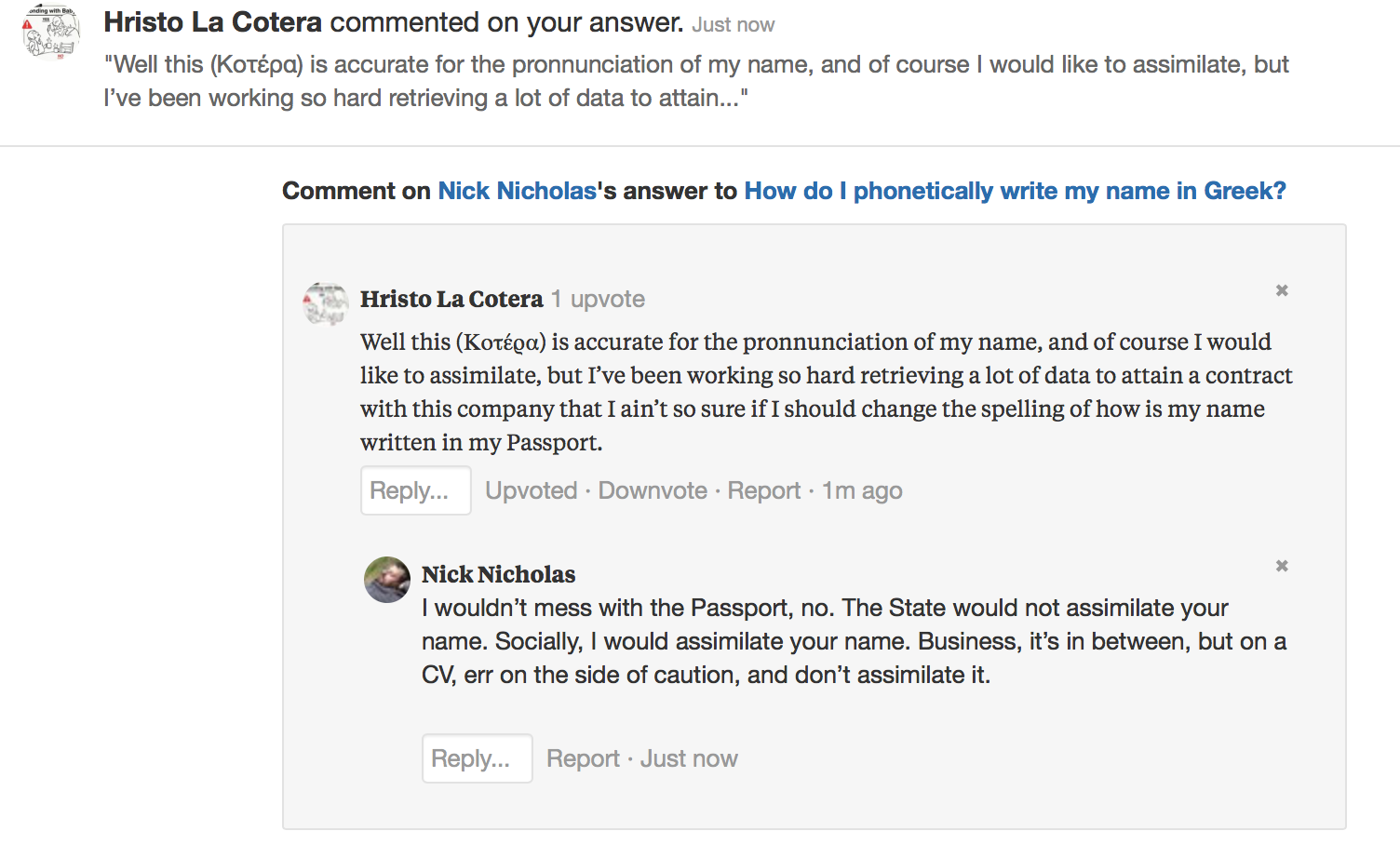Outside of the currently supported languages (English, Spanish, French in Beta):
If you ask D’Angelo, German and Italian: they’re next up in the plan. Launching a beta for Quora en français by Adam D’Angelo on The Quora Blog.
If you ask Clarissa Lohr: https://www.quora.com/What-are-t…
I think I would have chosen Hindi, Tamil and Russian next. Maybe Arabic.
If you ask me, LATIN! Praeclarum enim esset!!!¡!!!11!! Ond Englisc! Maciaþ Mierce grēat āġēan!
So. Let’s approach this a little more coldly.
Quora is not Wikimedia, and Quora is not a non-for-profit, and Quora is not out there to save the world. Would that it were so, but it’s not. Quora is a business. Or rather, Quora is trying to become a business. Which means Quora’s got to be all about the benjamins: the Venture Capitalists’ benjamins in the short term, the advertisers’ benjamins in the long term.
So its choices of languages have to be strategic.
What language choices are strategic?
- Languages that don’t already have a strong competitor website in place, and that aren’t likely to firewall Quora. As User has pointed out to me, that rules out China, which has Zhihu (Q&A website); and Taiwan and the Chinese diaspora aren’t enough to sustain a zh.quora.com on their own. It does not rule out French and German, where the localised equivalents have not done well: Séverine Godet’s answer to Why is Gozil (French version of Quora) not as popular as Quora?; What is the German equivalent of Quora?
- Languages spoken by lucrative demographics. That presumably rules out Hausa, for example.
- Languages whose lucrative demographics aren’t already comfortable using English Quora: the point is to grow market share, and to grow it in benjamins. That may (may) rule out Indian languages. But I’d have thought it also rules out German, if not Italian and French. I’ve seen a lot of French and German users here lukewarm about the prospect of Quora in their language.
- Languages that Silicon Valley VCs are likely to be wowed by. Here we get into identity politics, and Sam Morningstar, please don’t hit me. But permit me the idle speculation:
- A bunch of Silicon Valley VCs are likely to be wowed by Spanish, because it’s the default foreign language in California.
- A bunch of Silicon Valley VCs are likely to be wowed by French, German, and Italian, because those are the default prestige foreign languages in the Anglosphere (Britain, and those under British influence). I paused about including Italian; but music and art and the Renaissance have likely bought it a place at the table, rather than advertiser benjamins.
- A bunch of Silicon Valley VCs are likely not to be wowed by languages they have a cultural cringe against. This is irresponsible speculation, but: I have seen Indians on Quora beg for Indian language support, and I have seen Indians on Quora pooh-pooh Indian language support. Indians who have ended up as VCs in Cali, I suspect, are going to be among the latter: they loved English so much, they moved to the States. They may be biased against sending VC money back home, when being Indian on Quora in English is what they are all about. Same would go for any Chinese VCs in Cali.
- A bunch of Silicon Valley VCs are likely not to be wowed by languages seen to have been a bust for internationalisation in the past. Orkut did not fail because it was Big In Brazil and Immense In India; Orkut failed because of structural mismanagement. But “Big In Brazil” became a joke in Silicon Valley, so I can see Portuguese being demoted in the wow-factor list, among Valley VCs. Same goes for Indian languages.
My own more considered opinion: definitely Russian, as the monopoly of VK (social network) in Russia shows, and probably Arabic. There’s Benjamins to be had there. Unless…
- Languages that Silicon Valley VCs are likely to have politically-motivated distaste for, which outweighs the benjamins to be had.
I have no idea whether VCs in the Valley are so impractical as to let their cultural and political predilections outweigh their nose for money. But you gotta admit. If they are, that would explain French, German and Italian. Which I, as a cultural European, am fricking STOKED to see announced; but which I don’t think are where the benjamins are at.





